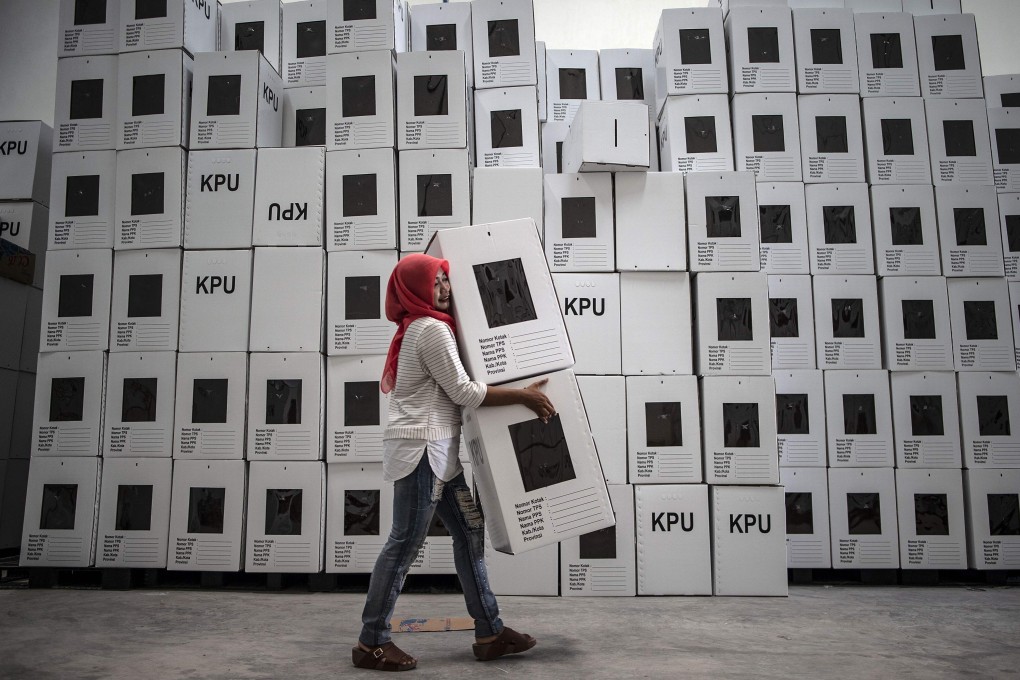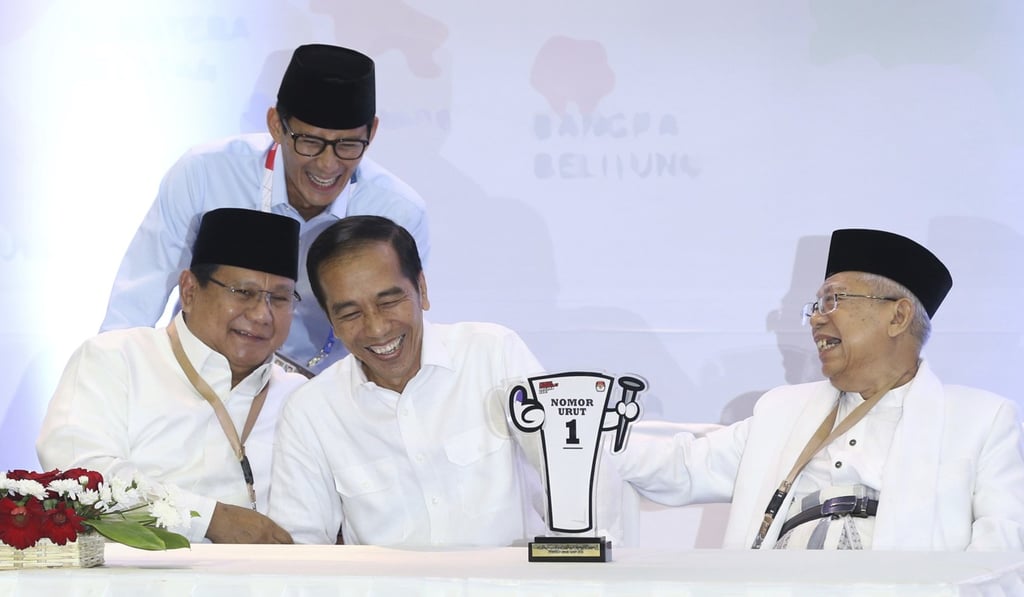Jokowi, Prabowo woo Muslim voters; ex-Jakarta governor Ahok fights for his right to vote in Osaka
- Indonesia’s presidential candidates went on the umrah and got endorsements from religious leaders, as overseas voting began ahead of the April 17 ballot in Indonesia

Other popular clerics endorsing the former general on Sunday were Adi Hidayat, another hijrah figure, and Abdullah Gymnastiar, widely known as Aa Gym, who said in a video uploaded by Prabowo’s coalition parties that he supported the pair because they “didn’t force ulema to give their support” during campaign. While endorsements by online-savvy Muslim clerics could strengthen the support of housewives, mothers, and educated Muslim millennials for Prabowo, analysts said that they were not enough to boost his electability as their endorsements came three days before the elections.
“Right now, voters’ map is already set in stone, who are going to vote for Jokowi and who for Prabowo,” said Wasisto Raharjo Jati, a researcher of Islamic political movements at the Centre for Political Studies at Indonesian Institute of Sciences. “Abdul Somad’s choice is his personal choice, it’s very different than endorsements from ulema from Nahdlatul Ulama who typically represents their very loyal Muslim followers.”
The fight over Muslim votes, a very significant voter base in the world’s largest Muslim-majority nation, was carried over to Mecca as both Widodo and Sandiaga Uno, Prabowo’s running mate, took off there after the final presidential debate on Saturday for a quick umrah before this week’s elections.

Widodo had a lead over Sandiaga, however, as the president met Saudi King Salman Abdulaziz and Crown Prince Muhammad bin Salman. Widodo and his wife, Iriana, also entered the Kaaba, Islam’s most sacred site, in a highly symbolic move to counter allegations that he was anti-Islam and a communist. After the meeting, Ace Hasan Syadzily, a spokesperson for Widodo’s campaign, said Saudi Arabia had added 10,000 slots to the 221,000 or so pilgrims Indonesia can send to Mecca each year for the haj.
“Mecca is chosen as part of a candidate’s efforts to symbolise himself with ‘the chosen leader’ status,” Jati said. “In a Javanese power dynamic, [going to umrah] can also be seen as an attempt to obtain a revelation or divine power.”